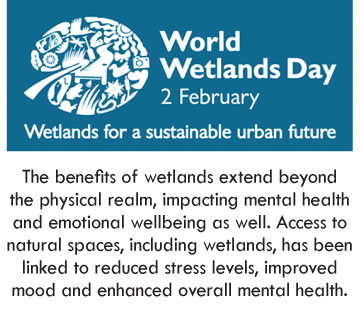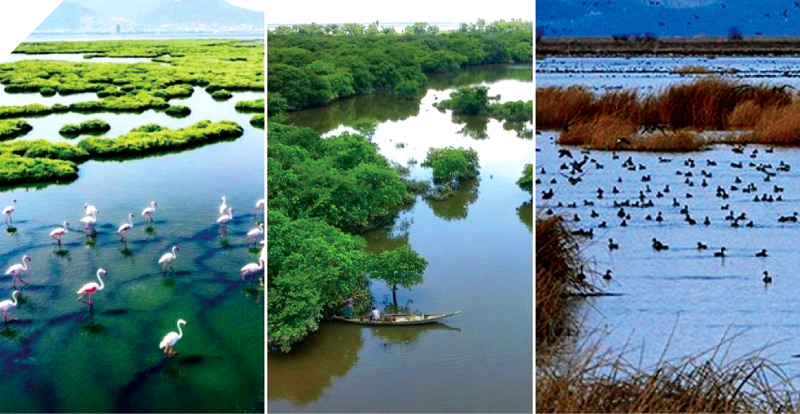As we approach February 2, 2024, the world gears up to celebrate World Wetlands Day, an annual event that spotlights the importance of these unique ecosystems. This year, the theme “Wetlands and Human Wellbeing” resonates deeply, emphasizing the intricate link between wetlands and the physical, mental, and environmental aspects of human health. It serves as a timely reminder of the critical role wetlands play in sustaining our overall wellbeing and the urgent need to protect and preserve them.
Wetlands are often hailed as nature’s pharmacies, providing a wealth of ecosystem services that directly contribute to human health. From purifying water and regulating water cycles to mitigating the impacts of climate change, wetlands are indispensable for maintaining a healthy environment. Clean water is essential for human survival, and wetlands act as natural filters, removing pollutants and impurities from water bodies. By safeguarding water quality, wetlands help ensure access to safe drinking water, protecting communities from waterborne diseases and promoting public health.
Moreover, wetlands play a crucial role in buffering against natural disasters such as floods, storms, and hurricanes. Their ability to absorb and store excess water helps reduce the risk of flooding and erosion, safeguarding lives and property. In coastal areas, wetlands like mangroves act as natural barriers, dissipating the force of waves and protecting coastal communities from the destructive impacts of storm surges. By providing this vital ecosystem service, wetlands enhance human resilience to climate-related hazards and contribute to overall wellbeing.
 The benefits of wetlands extend beyond the physical realm, impacting mental health and emotional wellbeing as well. Access to natural spaces, including wetlands, has been linked to reduced stress levels, improved mood and enhanced overall mental health. Spending time in nature promotes relaxation, mindfulness and a sense of connection with the natural world. Wetlands offer opportunities for recreation, leisure activities, and eco-tourism, allowing people to unwind and recharge in serene natural settings. By providing spaces for reflection and rejuvenation, wetlands contribute to holistic wellbeing, nurturing the mind, body and spirit.
The benefits of wetlands extend beyond the physical realm, impacting mental health and emotional wellbeing as well. Access to natural spaces, including wetlands, has been linked to reduced stress levels, improved mood and enhanced overall mental health. Spending time in nature promotes relaxation, mindfulness and a sense of connection with the natural world. Wetlands offer opportunities for recreation, leisure activities, and eco-tourism, allowing people to unwind and recharge in serene natural settings. By providing spaces for reflection and rejuvenation, wetlands contribute to holistic wellbeing, nurturing the mind, body and spirit.
Furthermore, wetlands are vital hubs of biodiversity, supporting a rich array of plant and animal species. The diversity of life found in wetlands provides numerous benefits to human health and wellbeing. Wetland ecosystems serve as a source of food, medicine, and genetic resources, supporting traditional livelihoods and cultural practices. Indigenous communities,
in particular, have a deep spiritual and cultural connection to wetlands, viewing them as sacred sites imbued with cultural significance. By preserving wetland biodiversity, we not only safeguard traditional knowledge and cultural heritage but also ensure the continued availability of ecosystem services essential for human wellbeing.
As we celebrate World Wetlands Day in 2024, it is imperative to recognize the interconnectedness of wetlands and human wellbeing. The health of these ecosystems directly impacts our physical, mental, and environmental health, highlighting the need for their conservation and sustainable management. Through education, advocacy, and collaborative action, we can raise awareness about the importance of wetlands and mobilize efforts to protect and restore them. By valuing and preserving wetlands, we not only safeguard the health and wellbeing of current generations but also ensure a sustainable future for generations to come. Let us join hands to celebrate and protect these invaluable ecosystems on World Wetlands Day and beyond.







